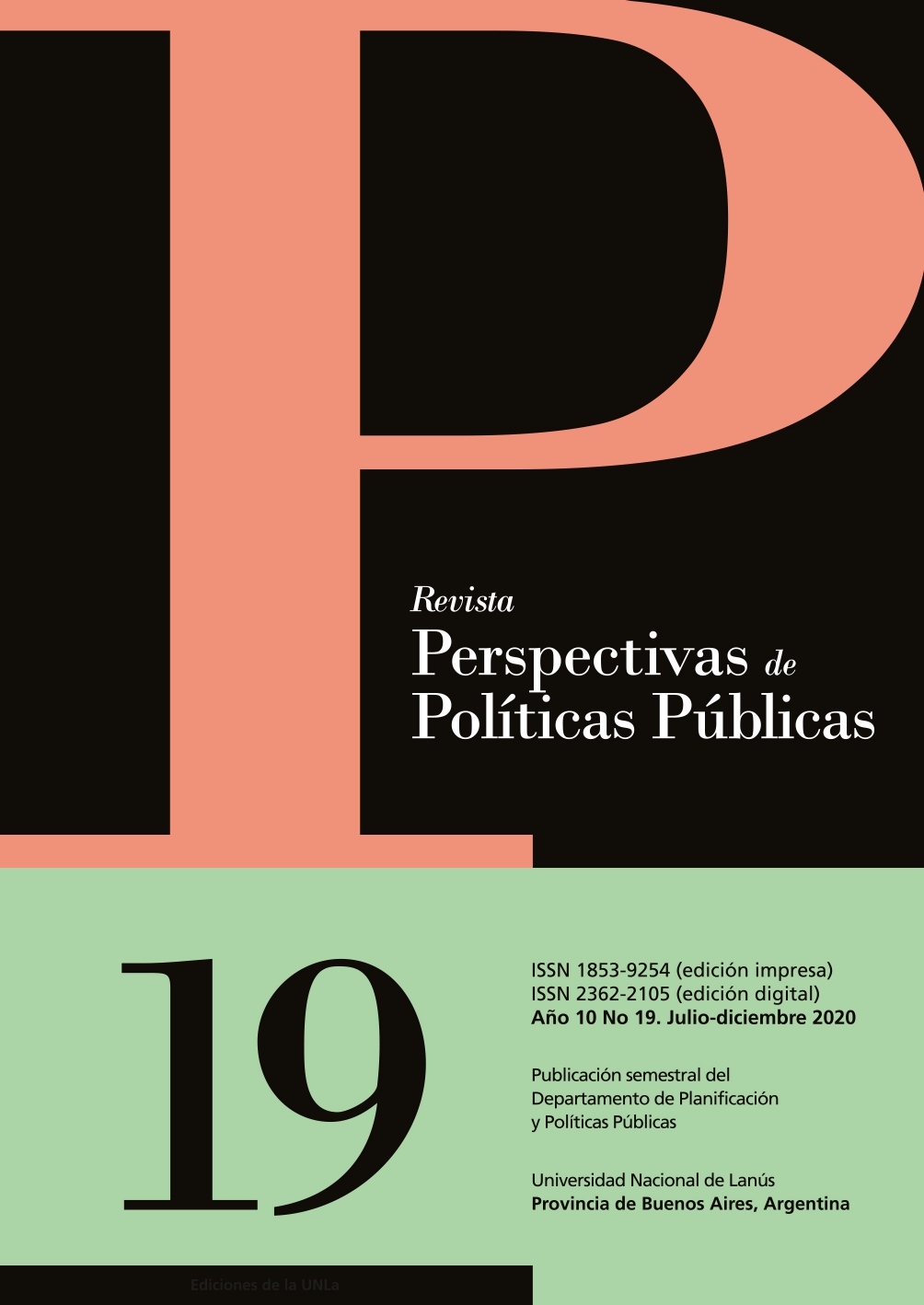Editorial
Abstract
This issue of the Journal of Public Policy Perspectives brings together articles that demonstrate the persistent presence of the state with relative independence from the specific issues and ideological signs that legitimize or justify it. The text by Carlos Matías Yáñez analyzes the relationship between policy proposals focused on improving the efficiency of public companies - a relevant ingredient in “state-centric” schemes - and the educational and professional trajectories of the members of their directorships based on the orientation they print. government definitions in political matters. Ezequiel Galván studies the way in which the Pro.Cre.Ar program designed by the present state of the government chaired by Cristina Fernández de Kirchner, was altered by state presenteeism during the presidency of engineer Macri, altering its nature and original goals and transforming it into a promotional tool. access to housing for middle sectors, in financial business with a high cost for those who agreed to take it. Juan Montes Cató and Patricia Ventricestudian the active joint interventions of branches of the executive power and the judicial power of a theoretically absent state, aimed at disciplining union activism. Soledad González Alvarizqueta sets her sights on state action in developed and developing countries in response to the 2007-2008 food crisis implemented by the main importers of Argentine fresh fruits, a matter of extreme relevance for several economies and regional social coalitions. Alfredo Ladillinsky investigates the usefulness of the concept of resilience and its articulation with local development, as an effective tool for planning municipal management.The following four texts have as a shared axis policies to promote gender equality, an issue that has acquired centrality in the policy guidelines of the government that began in December 2019. Hernán Toppi's text proposes a comparison of the equality criteria promoted at the level of political representation in the legislative bodies of Paraguay and Argentina; Paula Canelo shows the variations in the participation of women in national and subnational cabinets in Argentina, while Agustina Iglesias Skulj wonders about the effectiveness of a normative decision of the General Inspectorate of Justice to guarantee gender parity in administration and inspection bodies of civil legal persons . Finally, the document issued by the Chief of Cabinet of Ministers “Guidelines for gender equality in State companies and societies” is included.
Carlos M. VilasDirector






